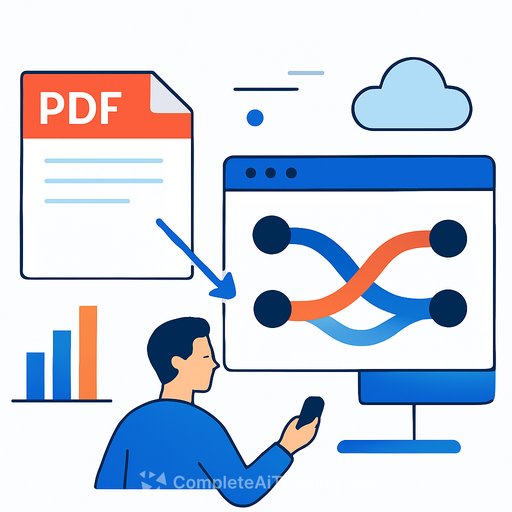Kemenko PMK-Microsoft Push AI-Based Public Services: What IT and Dev Teams Should Prepare
The Coordinating Ministry for Human Development and Culture (Kemenko PMK) is partnering with Microsoft Indonesia and BINAR to scale AI adoption in government. Through the Artificial Intelligence Leadership Workshop (KA): Smart Government Governance Transformation, the focus is clear: speed up implementation, improve decision quality, and deliver better services to citizens.
"The discussion (related to AI) is no longer about whether we adopt it or not. The discussion is how we can adopt it quickly, effectively, efficiently, and productively," said Coordinating Minister for Human Development and Culture, Pratikno.
As a technology partner, Microsoft supports AI-era public leadership through its Microsoft Elevate initiative-growing AI skills across governance, education, and non-profit. "The ability of state apparatus to understand and use AI responsibly can determine Indonesia's success in creating an adaptive and inclusive government," said Dharma Simorangkir, President Director of Microsoft Indonesia.
Dharma emphasized the goal: use AI to drive internal efficiency and deliver policies and services with real impact. The collaboration backs Indonesia Emas 2045 through stronger digital leadership and capability building for public officials. "Microsoft is committed to continuing to support the inclusive digital and AI transformation in Indonesia and realizing the country's vision as a global leader in an AI-based economy," he said.
What this means for IT and development teams
- Data foundation first: consolidate clean, labeled, and policy-compliant datasets. Prioritize interoperability and metadata. Invest in secure data pipelines and cataloging.
- Security and compliance: apply zero-trust, role-based access, PII redaction, audit logs, and data residency controls. Prepare for privacy impact assessments and model cards.
- Model strategy: mix foundation models (commercial and open-source) with retrieval-augmented generation (RAG) over vetted government corpora. Use adapters/LoRA before full fine-tuning to control cost and drift.
- MLOps/AIOps: standardize CI/CD for models, prompt/version management, offline/online evaluation, cost monitoring, and rollback. Treat prompts and retrieval indices as versioned code.
- Responsible AI: bias testing, content filters, prompt injection defenses, safety red-teaming, and human-in-the-loop for high-risk decisions. Keep clear escalation paths.
- APIs and interoperability: expose capabilities via stable APIs, follow open standards, and plan for vendor portability to avoid lock-in.
- Change management: upskill civil servants, embed AI champions in agencies, and set a shared glossary to reduce miscommunication across policy and engineering.
High-impact public service use cases
- Citizen service assistants with retrieval from verified regulations, FAQs, and forms, plus human handoff for edge cases.
- Document intelligence for summarizing regulations, drafting memos, translating across Bahasa Indonesia and regional languages, and generating meeting minutes.
- Case triage and workload routing for social services, with clear fairness checks and auditability.
- Fraud detection and anomaly spotting in benefits disbursement and procurement data.
- Predictive maintenance for public facilities and infrastructure using sensor and ticket data.
Execute in the next 90 days
- Pick two use cases with clear policy relevance and measurable outcomes (e.g., reduce average response time by 30%).
- Form a cross-functional squad: product owner, policy lead, data engineer, ML engineer, security, and legal.
- Define success metrics, guardrails, and data sources; complete a privacy and security review upfront.
- Build a thin slice: RAG baseline, evaluation set, human review workflow, and dashboards for quality and cost.
- Pilot with 1-2 agencies, gather feedback, iterate weekly, then scale through shared services and reusable components.
Standards and resources
- NIST AI Risk Management Framework - a practical structure for risk, measurement, and governance.
- Microsoft Responsible AI resources - principles, tools, and case studies relevant to public sector teams.
- AI courses by leading AI companies - helpful for upskilling engineering squads building government-grade AI.
- AI automation certification - useful for teams standardizing workflows and MLOps practices.
Bottom line
The mandate is clear: build AI that is useful, safe, and measurable. With leadership backing, the right guardrails, and a focus on data quality, Indonesia can deliver faster services and better decisions-at scale.
Your membership also unlocks:






